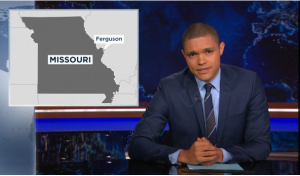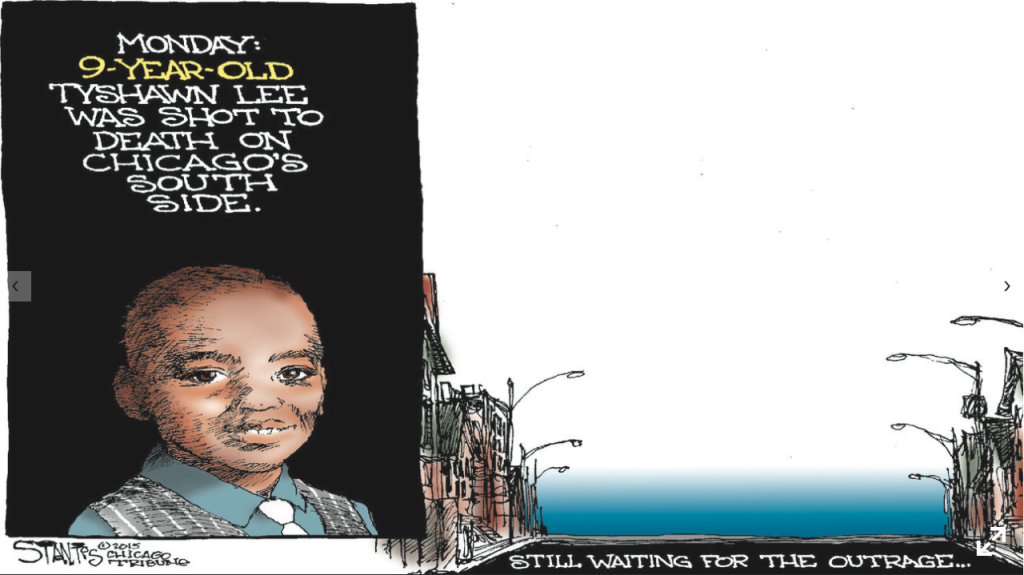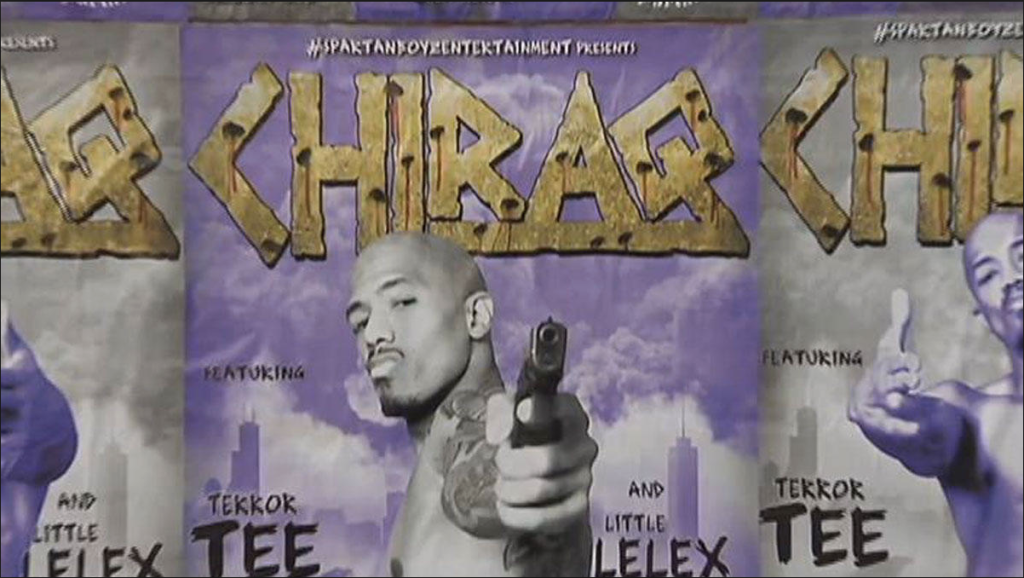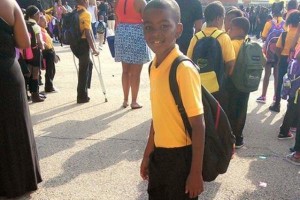Michael Brown was a Black 18-year-old who a White police officer, Darren Wilson, shot in Ferguson last year, when he resisted arrest after allegedly perpetrating a strong-arm robbery. This killing triggered outrage that is still reverberating.
Tyshawn Lee was a Black 9-year-old who a Black gang member shot in Chicago this week, when he was just playing near his grandmother’s home. This killing triggered silence that is still deafening.
Where’s the outrage?!
Police investigating the fatal shooting of 9-year-old Tyshawn Lee in a South Side alley believe that the boy was targeted as part of an ongoing gang feud involving his relatives.
Police said they believe the child’s father has information about the possible retaliation, but is not being forthcoming…
Tyshawn was shot several times in the upper body, including in the head and back.
(ABC Chicago WLS, November 3, 2015)
Frankly, all I can say about this is, God help the city where residents fear gang members more than they trust police officers. But, given the scourge of Black-on-Black crime, the irony is that Blacks predominate in areas of far too many cities where this is the case.
This brings me to the unwitting spectre of the “Ferguson effect.”
Chuck Rosenberg, head of the U.S. Drug Enforcement Agency, said Wednesday that he agrees with FBI Director James Comey that police officers are reluctant to aggressively enforce laws in the post-Ferguson era of capturing police activity on smartphones and YouTube…
The comments offer more support for the theory that, faced with increased scrutiny, the nation’s police officers are pulling back.
(Washington Post, November 4, 2015)
 Unfortunately, Black activists and pundits have spent more time this week splitting hairs about the Ferguson effect than condemning the increasing lawlessness that led to Tyshawn’s death.
Unfortunately, Black activists and pundits have spent more time this week splitting hairs about the Ferguson effect than condemning the increasing lawlessness that led to Tyshawn’s death.
For example, on Monday’s edition of The Daily Show, new host Trevor Noah quipped that:
Police now live in fear of someone whipping out their phone and brutally filming them.
No doubt, because it went viral, he considers this joke his crowning achievement to date.
Never mind that nothing demonstrated the deadly impact of the Ferguson effect quite like police officers being reluctant to intervene as (Black) rioters looted, pillaged, and burned their own areas of Baltimore earlier this year. To say nothing of the fact that no less a paper of record than the New York Times affirmed this effect in a June 15, 2015, report headlined, “West Baltimore’s Police Presence Drops, and Murder Soars” (the Baltimore effect?).
Meanwhile, Noah and others willfully ignore the obvious and understandable truth that police officers (White and Black) have always been reluctant to police high-crime areas, like the South Side of Chicago. Only this explains the despairing resonance of Spike Lee’s forthcoming movie, Chiraq, about violence so wanton and unchecked in Black areas of Chicago, residents might as well be living in Iraq.
The more troubling irony, though, is that police officers fear vigilant(e) public scrutiny that could end their careers (a la Darren Wilson) more than gangland violence that could end their lives.
Such is the seemingly inexorable and irreconcilable breakdown in trust between those who wear blue and those who are Black in America today.
Rich, cloistered Blacks, like Noah and Lee, can crack jokes and make movies about this increasingly violent malaise, respectively. But poor, exposed Blacks, like Tyshawn and honors student Hadiya Pindleton (Remember her!), will suffer most because of it.
Related commentaries:
Ferguson to Baltimore…
* This commentary was originally published yesterday, Wednesday, at 5:23 p.m.


